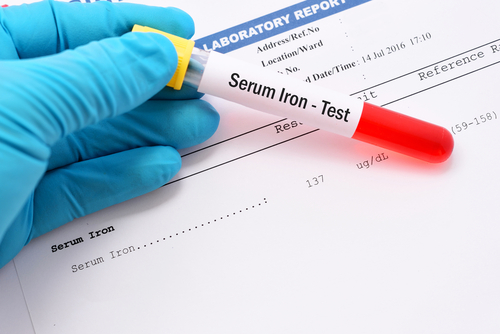The administration of Injectafer, an iron replacement therapy, was shown to safely help manage fibromyalgia symptoms when compared to a placebo in patients with iron deficiency, according to data from a Phase 2 clinical trial.
The findings were reported in the study, “A Blinded, Randomized, Placebo-Controlled Study to Investigate the Efficacy and Safety of Ferric Carboxymaltose in Iron-Deficient Patients with Fibromyalgia,” published in the journal Rheumatology and Therapy.
Fibromyalgia is characterized by widespread, chronic pain together with several other symptoms, including fatigue, depression, anxiety, and stiffness. It is still unclear what causes fibromyalgia, but studies have suggested that abnormal responses by the central nervous system may contribute to fibromyalgia symptoms.
A previous study revealed that fibromyalgia was a common feature presented by patients with iron-deficiency anemia and thalassemia minor. In addition, patients with low levels of iron have a 5.6 times higher risk of developing fibromyalgia. It is common for patients with fibromyalgia to have lower levels of iron compared to healthy individuals.
Taken together, these data suggest that iron could play a role in the development of fibromyalgia and that iron supplements could potentially be a therapeutic option for these patients.
Now, in a Phase 2 trial (NCT02409459), researchers tested the safety and effectiveness of iron replacement therapy with Injectafer (ferric carboxymaltose) for the treatment of iron deficiency in patients with fibromyalgia.
Injectafer was developed by Luitpold Pharmaceuticals to mimic the response of natural iron. It is a complex iron formulation that was approved by the U.S. Food and Drug Administration (FDA) in 2013 for the treatment of iron-deficiency anemia in adult patients who do not respond well to oral iron or have non–dialysis-dependent chronic kidney disease.
The trial included 81 patients who were randomly assigned to receive infusions of 15 mg/kg of Injectafer or a placebo. All patients received two administrations of the treatment, one on the first day of the study and a second one five days later.
At day 42 post-treatment, Injectafer showed to induce greater improvements in several parameters, namely in the total scores of the revised fibromyalgia impact questionnaire (FIQR), brief pain inventory (BPI), fatigue, and iron levels, compared to the placebo.
However, no difference between Injectafer and placebo treatment were seen in the scores of a sleep scale, the medical outcomes study, or MOS.
Treatment with Injectafer was found to be safe and well-tolerated. No serious adverse events related to the treatment were reported during the study. The most common adverse effects observed in the Injectafer-treated group were flushing, nausea, and dizziness.
“Compared with placebo, ferric carboxymaltose [Injectafer] improved measures of fibromyalgia severity and was well tolerated,” the researchers wrote. “The current results suggest that ferric carboxymaltose shows benefit in iron-deficient patients with concurrent fibromyalgia.”
The team emphasized that additional studies should be conducted to further address the beneficial therapeutic potential of Injectafer for the treatment of fibromyalgia patients with iron deficiency.

